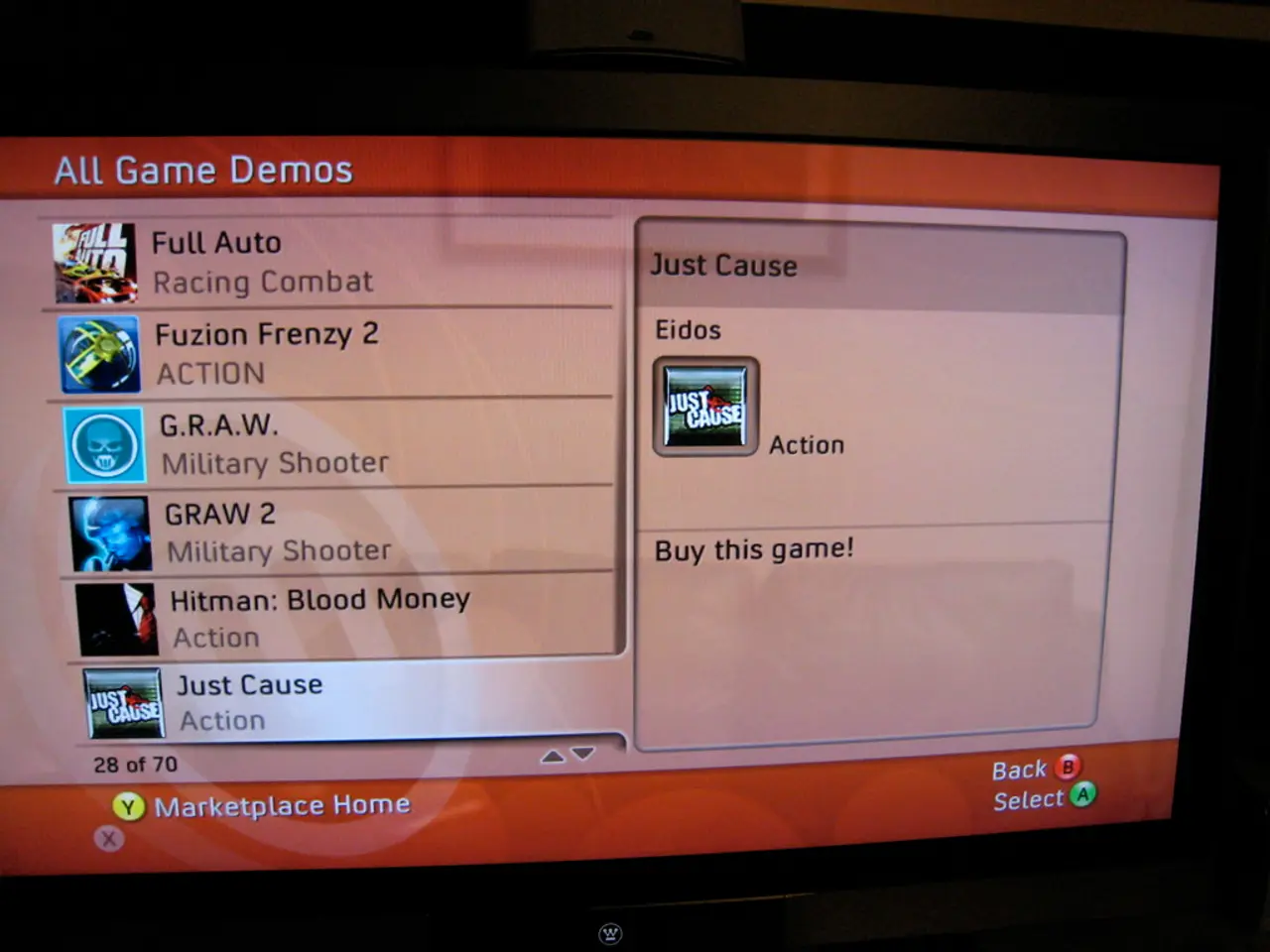Online players generating substantial sums of Nigerian currency through play-to-earn gaming activities
In the ever-evolving world of gaming, a new trend is emerging in play-to-earn (P2E) platforms – a shift away from direct cryptocurrency rewards towards more sustainable game economies, social identity, and player belonging. This evolution, seen particularly in non-crypto-tied P2E platforms, emphasizes resilience, social engagement, and gameplay-first approaches.
One such platform making waves is Hyper, a game finance app owned by Metaverse Magna, which invites Web3 developers and indie game creators to submit their games. Hyper, popular in Nigeria due to increasing online gaming activity and the second major crypto bull run of 2021, boasts an active user base of around 100,000 gamers, including Ademide, who has been playing the game for over two months.
Ademide, a skilled gamer, plays 'Hunter Killer' in challenge mode on Hyper. He considers himself skilled and likes to challenge his friends in peer-to-peer battles. In fact, he has made ₦8,000 from his gaming sessions on Hyper. The platform supports withdrawals via local bank accounts or PayPal, and gamers earn anywhere from ₦2,000 to ₦8,000 weekly, with averages of up to ₦48,000 monthly.
Hyper's in-game token, HYP coins, are not cryptocurrencies but stable in-app credits, redeemable for real money. One HYP coin equals ₦5, and the exchange rate is fixed per region. It's important to note that, due to Nigeria's law on cryptocurrency, Hyper does not offer crypto rewards to gamers.
The model rewards consistency and skill over luck. Players battle in real time, and leaderboard rankings determine payouts in tournament game modes. The platform also has a 5,000-member Telegram community, featuring members from different parts of Africa. Users must complete full Know Your Customer (KYC) verification, including ID and bank verification.
This shift towards non-crypto-tied P2E platforms is a global trend. In April, SCOR Foundation, a Web3 gaming startup, launched new titles on the TON blockchain to allow users to play games online and earn $SCOR tokens. Another popular crypto-based P2E game, Axie Infinity, took off in 2021, crossing 1 million global users.
Successful games highlight fun and engaging content first, with blockchain or tokenized features acting as value-added layers, not the core attraction. This results in healthier economies that stand without token reward dependency. Developers adopt cloud and backend frameworks supporting live services, real-time multiplayer, and live operations to enhance player experience and retention, critical for P2E longevity.
Web3 elements such as tokenized item ownership, curated marketplaces, and on-chain achievements exist but are implemented discreetly to avoid the stigma of “crypto games,” making blockchain tech more of a utility rather than a marketing focus. Games are also embedding social tools like leaderboards on mainstream platforms, DAO-driven guilds for governance, and creative co-creation tools, enabling players to influence game policies and narratives, increasing emotional investment without direct crypto incentives.
In summary, non-crypto-tied P2E platforms in 2025 are trending towards resilience, social belonging, and gameplay-first approaches, using blockchain and token mechanics subtly as supporting elements rather than primary incentives. Examples like Hyper in Africa adopt these models to expand play-to-earn inclusively.
- In the realm of Web3 gaming, platforms like Hyper, a game finance app in Nigeria, are emerging, inviting developers and indie game creators to submit their games to cater to the growing online gaming demographic.
- Ademide, a skilled Hyper gamer, earns money by playing 'Hunter Killer' and challenging his peers, withdrawing his earnings via local bank accounts or PayPal.
- Despite the absence of cryptocurrency rewards, Hyper operates on a non-crypto-tied model, offering stable in-app credits called HYP coins, redeemable for real money.
- The gaming industry has seen a trend of global adoption of non-crypto-tied play-to-earn (P2E) platforms, with SCOR Foundation launching new titles on the TON blockchain and Axie Infinity crossing 1 million global users in 2021.
- Successful P2E games prioritize fun and engaging content, with blockchain or tokenized features serving as added value rather than the primary draw, resulting in healthier economies less reliant on token rewards.
- Future P2E platforms in 2025 are expected to focus on resilience, social engagement, and gameplay-first approaches, using blockchain technology discreetly as a utility rather than a marketing focus.




